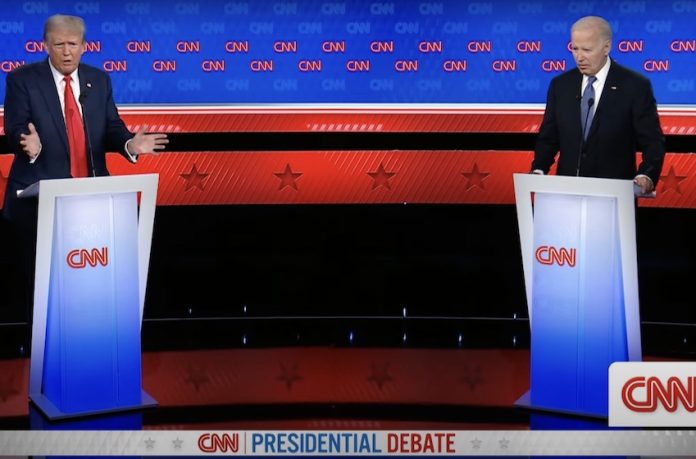Mexico was both an implicit and explicit topic in an acrimonious presidential debate in the United States on Thursday night, as President Joe Biden and former president Donald Trump squared off on issues such as immigration, border security and the fentanyl crisis.
Biden, 81, is the Democratic Party’s presumptive nominee, but his performance at last night’s debate led to increased speculation that he could be replaced by a younger candidate.
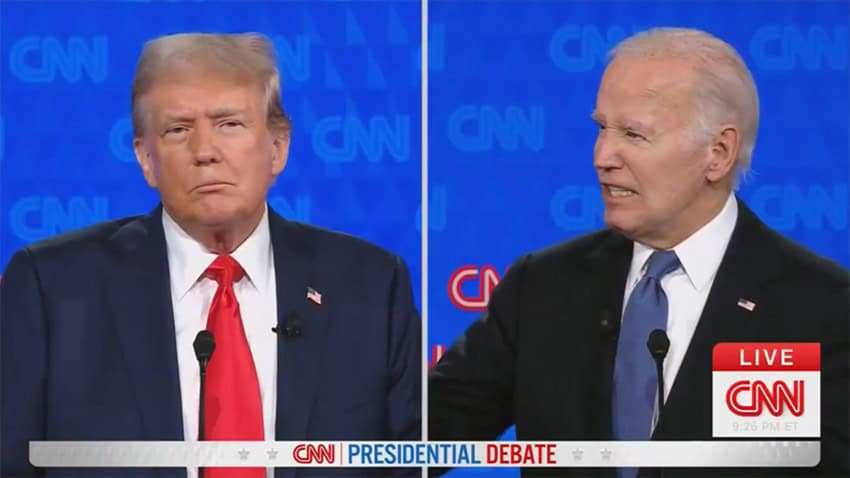
Trump, 78, is certain to be the Republican Party’s presidential candidate, even though he is now a convicted felon.
Illegal immigration into the United States from Mexico is set to be a major issue in the Nov. 5 presidential election, while the opioid crisis — mainly fueled by illegal fentanyl smuggled into the U.S. from Mexico — is also a significant concern for many voters.
Mexico and the United States collaborate on immigration issues and the fight against fentanyl, but some politicians in the U.S., especially Republicans, argue that Mexico isn’t doing enough to stem the flow of migrants and narcotics across the two countries’ shared border.
Below you’ll find a selection of remarks made by Biden and Trump during Thursday night’s presidential debate relating to immigration and other issues between Mexico and the United States.
Immigration and border security
U.S Customs and Border Protection encountered a record high of almost 2.5 million migrants at the U.S.-Mexico border in fiscal year 2023, which ended in September.
Arrests of people crossing illegally from Mexico into the U.S. reached a record monthly high of almost 250,000 last December, but the numbers decreased significantly in the first five months of 2024.
Migrants typically enter Mexico at the country’s southern border with Guatemala before making the long, arduous and dangerous journey to the northern border on buses, atop trains, in tractor trailers and on foot. Mexican authorities detain and deport significant numbers of migrants, but many others make it to the northern border before attempting to make asylum claims in the United States or cross into the U.S. illegally.
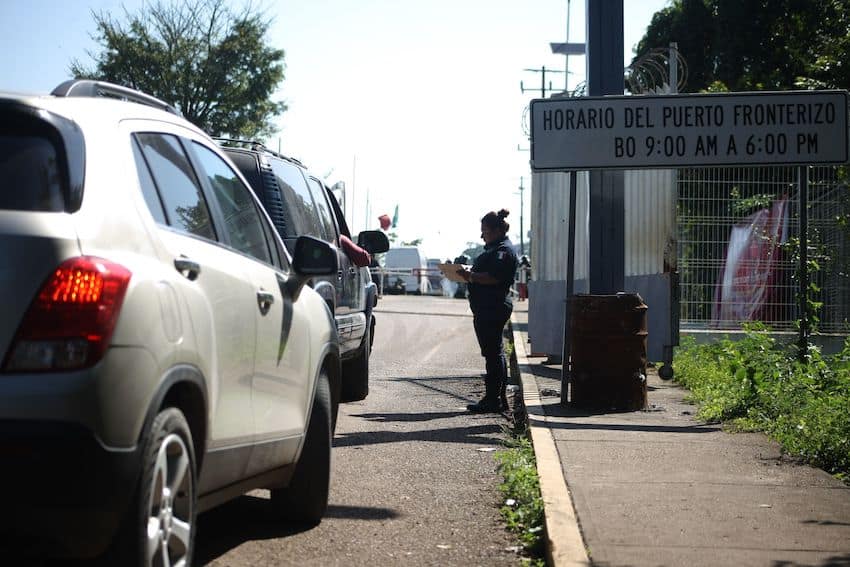
Biden on immigration
“When … [Trump] was president, he was … separating babies from their mothers, putting them in cages, making sure the families were separated. That’s not the right way to go,” Biden said early in the debate.
The U.S. president claimed “there are 40% fewer people coming across the border illegally*” since he issued an executive order in early June that prevents migrants from making asylum claims at the U.S.-Mexico border at times when crossings between legal ports of entry surge.
* PBS News fact-checked the statement and determined that it was “mostly true.”
Trump on immigration
“We had the safest border in the history of our country [when I was president]. … All he had to do was leave it. He decided to open up our border, open up our country to people that are from prisons, people that are from mental institutions, … terrorists,” Trump said.
He later said that Biden “allowed millions of people to come in here from prisons, jails and mental institutions,” a remark PBS News determined was significantly exaggerated given that just over 100,000 noncitizens with criminal convictions were arrested in the past three years.
On Biden’s June 4 executive order, Trump said:
“Now all of a sudden he’s trying to get a little tough on the border, he came out with a nothing deal and it reduced [immigration] a little bit. … It’s insignificant, he wants open borders. He wants our country to either be destroyed or he wants to pick up those people as voters. And we just can’t let it happen.”
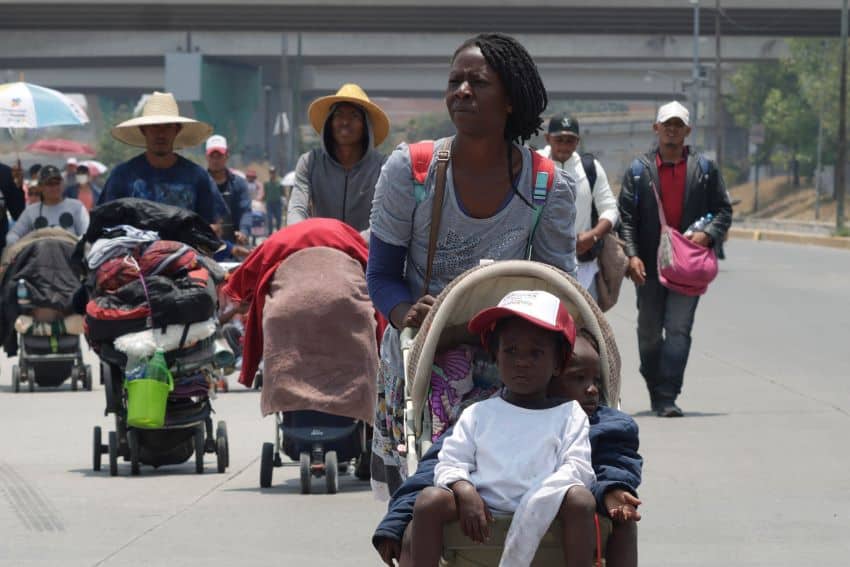
Trump also asserted that “because of [Biden’s] ridiculous, insane and very stupid policies, people are coming in and they’re killing our citizens at a level that we’ve never seen.”
“We call it migrant crime*. I call it Biden migrant crime,” he added.
* Reuters reported in April that “a range of studies by academics and think tanks have shown that immigrants do not commit crime at a higher rate than native-born Americans.”
Trump and Biden debate the fentanyl crisis
Around 107,500 people died from a drug overdose in the United States in 2023, according to the U.S. Centers for Disease Control and Prevention.
Fentanyl — large quantities of which are manufactured by Mexican cartels with precursor chemicals imported from China — were responsible for almost 70% of the overdose deaths.
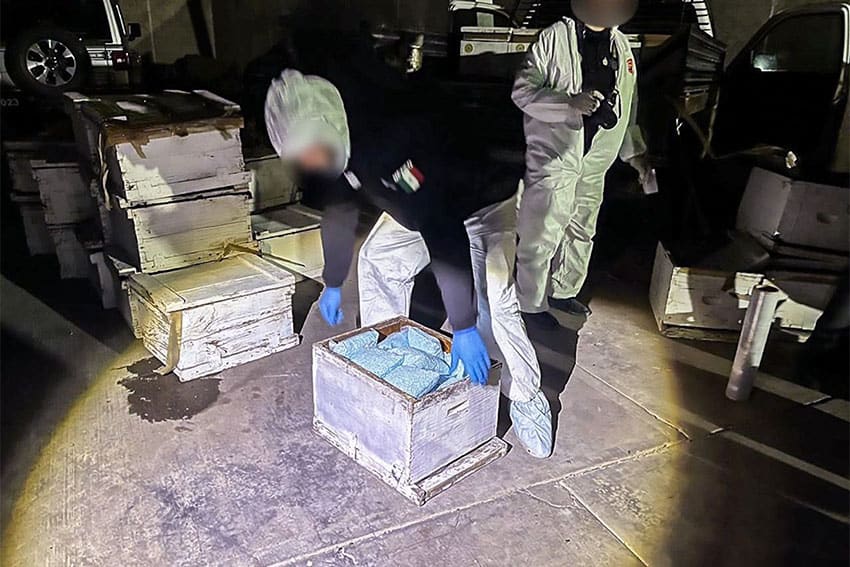
In recent years, Mexican and U.S. authorities have increased their cooperation on the fight against fentanyl, and the issue has been a key focus of bilateral security dialogue.
U.S. Secretary of State Antony Blinken acknowledged last month that the current Mexican government has seized “a record amount of fentanyl” — more than eight tonnes between December 2018 and May 2024.
Some Republicans, including Trump, have advocated the use of the U.S. military in Mexico to combat Mexican drug cartels, two of which — the Sinaloa Cartel and the Jalisco New Generation Cartel — pose “the greatest criminal threat the United States has ever faced,” according to Drug Enforcement Administration chief Anne Milgram.
Biden on the fentanyl crisis
“[The entry to the U.S. of] fentanyl and the byproducts of fentanyl went down for a while. And I wanted to make sure we use the machinery that can detect fentanyl, these big machines that roll over everything that comes across the border, and it costs a lot of money. That was part of this deal we put together, this bipartisan deal,” Biden said.
“More fentanyl machines, more being able to detect drugs, more numbers of agents, more numbers of all the people at the border. And when we had that deal done, he went and he called his Republican colleagues and said ‘don’t do it. It’s going to hurt me politically,'” he continued.
“He never argued it’s not a good bill. It’s a really good bill. We need those machines. … And we’re coming down very hard in every country in Asia in terms of precursors for fentanyl. And Mexico is working with us to make sure they don’t have the technology to be able to put it together*. That’s what we have to do. We need those machines.”
* As The New York Times noted, it was unclear what Biden meant when he said that “Mexico is working with us to make sure they don’t have the technology to be able to put it together.”
He was possibly referring to Mexican authorities’ efforts to stop criminal groups from obtaining pill presses and other machinery used in the production of fentanyl.
Biden’s assertion that Mexico is working with the United States on the fight against fentanyl is correct.
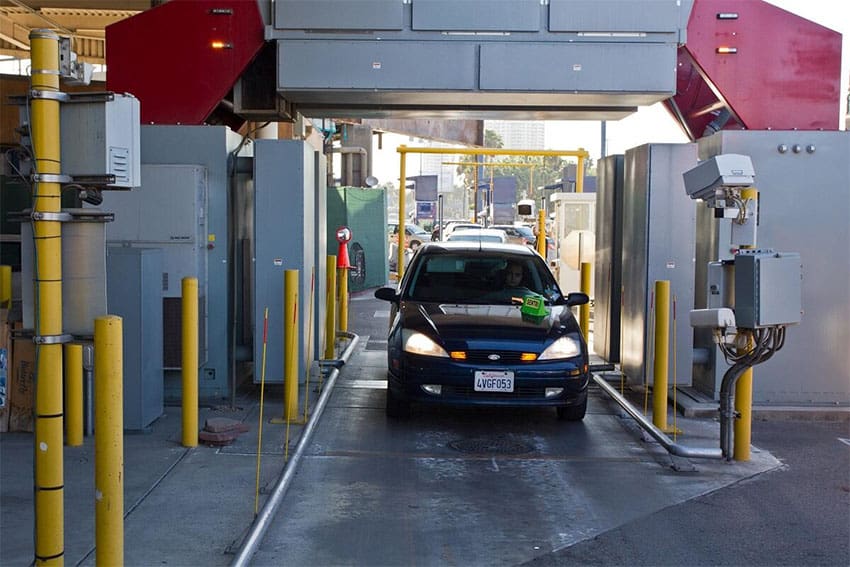
Trump on the fentanyl crisis
“We were doing very well at addiction until the COVID came along. We had the two-and-a-half, almost three years of like nobody’s ever had before, any country in every way. And then we had to get tough. And it was the drugs pouring across the border, … it started to increase,” Trump said.
“We got great equipment. We bought the certain dog. That’s the most incredible thing that you’ve ever seen, the way they can spot it. We did a lot. And … we were getting very low numbers. Very, very low numbers,” he added.
“Then he came along. The numbers — have you seen the numbers now? … The amount of drugs and human trafficking in women coming across our border, the worst thing I’ve ever seen, at numbers that nobody’s ever seen — under him because the border is so bad. But the number of drugs coming across our border now is the largest we’ve ever had by far.”
* Drug overdose deaths in the United States have increased during the Biden administration compared to the Trump years. The number of overdose deaths last year was 17% higher than 2020, the last full year of the Trump administration, and 52% higher than 2019.
Trump’s immigration plan: Deport undocumented migrants en masse
Trump was specifically asked about his plan to deport large numbers of undocumented migrants, which could affect millions of Mexicans who live and work in the United States.
“President Trump, … you’ve said that you’re going to carry out, quote, ‘the largest domestic deportation operation in American history,’ unquote. Does that mean that you will deport every undocumented immigrant in America, including those who have jobs, including those whose spouses are citizens, and including those who have lived here for decades? And if so, how will you do it?” asked CNN’s Jake Tapper.
After railing against “migrant crime,” Trump accused Biden of opening the United States borders before he declared:
“We have to get a lot of these people out and we have to get them out fast, because they’re going to destroy our country. Just take a look at where they’re living. They’re living in luxury hotels in New York City and other places. Our veterans are on the street.”
For his part, Biden announced new immigration rules last week prior to the presidential debate. The new rules will allow certain undocumented spouses and children of U.S. citizens to apply for lawful permanent residence without leaving the country. As many as 400,000 Mexicans could obtain permanent residency in the U.S. through the program and eventually become American citizens, according to Mexican Ministry of Foreign Affairs official Roberto Velasco.
Mexico News Daily
